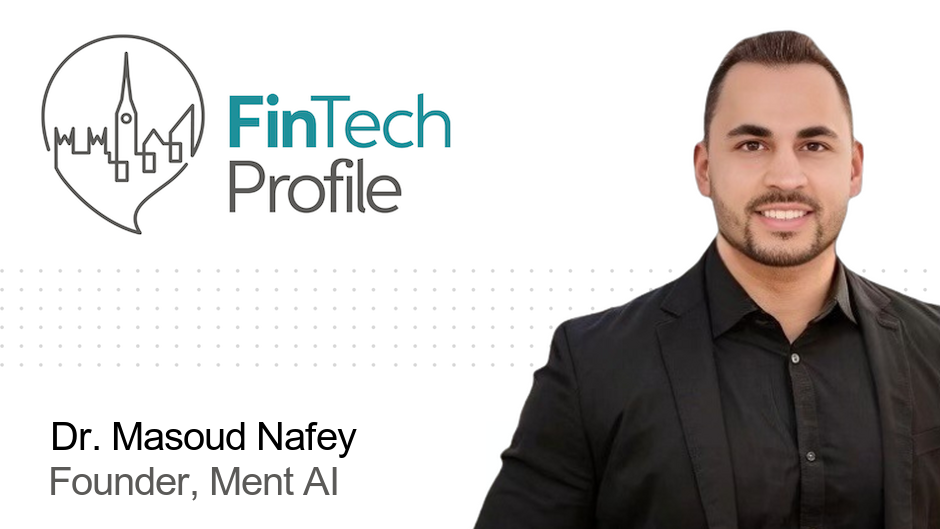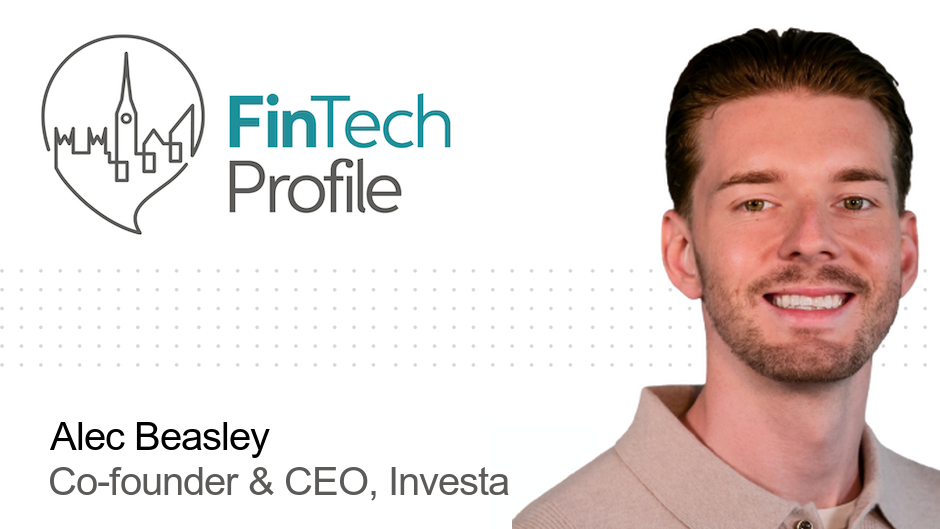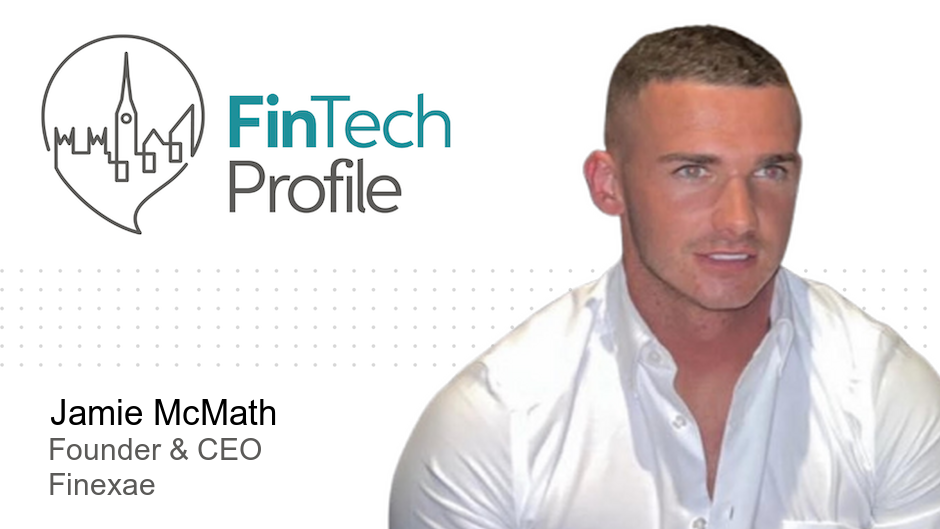Peter Visser, Cofounder & Director, The Trading Cafe
Peter Visser shares how The Trading Cafe is transforming trading education with scientifically-proven methods and genuine expert traders, achieving remarkable student results.

Today we're meeting Peter, Cofounder & Director at The Trading Cafe. They specialise in providing structured education in the financial trading space.
Over to you Peter - my questions are in bold:
Who are you and what's your background?
During my business degree at the University of Kent I had to do a year in industry. I worked for a large pharmaceutical company (GSK) and saw firsthand what corporate life would be like. I decided right there and then I would become an entrepreneur and be rich. Corporates worked too hard and got too little for their efforts. Little did I know that I was about to work harder than I ever have, for less than I ever have.
I set up a company called Digital Video Lounge and made animation videos for small businesses. I was constantly broke and could barely afford to pay rent. Then, like every smart person I bought a 3-day Forex course on debt for just over £2,000. The salesman told me it would solve all my financial problems. I was hooked. Turns out that was not the case, but it became like an addiction. Being someone who doesn't give up was my downfall when it came to trading. I spent the next few years using any spare cash to buy trading robots, more courses, Forex signals, indicators that are easy to follow. I spent the better part of 5 years simply washing money down the drain and wasting my time.
However, while I was racking up one failure after another gambling in the markets, my business ventures started doing better. I became an expert at generating leads for businesses online. I helped dentists, law firms, doctor's offices and custom home builders. Then, in 2015 I was contacted by an ex-Wall Street trader. He wanted to sell his education online. I went into a partnership with him. In less than 6 months that business had well over one thousand customers.
What is your job title and what are your general responsibilities?
Marketing Director, but I also oversee the corporate structure (board meetings, shares, stock options for staff etc.), legal department, and other miscellaneous responsibilities. A classic 'founder' who's remit is expanded.
Can you give us an overview of your business?
We are a Trading and Wealth Education Company. We recruit genuine traders and turn their knowledge into structured curriculums. Our courses have taken complete novices and turned them into profitable traders on live accounts - people from all walks of life. Music teachers, dress store owners and entrepreneurs. We strive for "zero gaps" education. One of our main unique selling positions is our structure. We use only scientifically proven education techniques and we're very strict about students sticking to it.
Module → practice project → questions → barriers. Trading is just like any other skill. You need to learn it properly. YouTube videos and random courses won't do. Our other USP is the fact that we have multiple experts - and they are genuinely experts.
For example, in early 2025 we recruited Brent Carlile who won the Trading World Cup the year before. Not only are our traders and instructors fully vetted, but they provide multiple ways to trade. Each one with a unique style and method, allowing students from all different backgrounds and skills to find something that resonates. Finally, we track our students and publish their results. Every single month we have a prize giving - handing out cash prizes to our best students… and we will show the average student result as well. Meaning that you can see what the average is among all the students put together - not just the Cherry picked best ones. And since we have launched our reputation has exploded.
We have over 1,000 Trustpilot reviews with 90% of them being 5-star. However, one of our most notable achievements is winning over the Reddit community - a famously sceptical place. We have hundreds upon hundreds of comments from happy Reddit users and even dedicated threads encouraging people to learn from us. Our company doesn't even have a presence on the site. It just happened.
Tell us how you are funded?
We are self funded. It took about a year or so to become cashflow positive and since then we have grown by reinvesting our profits.
What's the origin story? Why did you start the company? To solve what problems?
Since I was a consumer in this industry for years, I understood the market very well. However, being on the other side opened my eyes to all the insane realities. No matter how legit the trader… out of a thousand or so customers there would be only one or two who could trade. I couldn't quite understand what was going on.
The teacher (ex-Wall Street trader) was legit. The students loved him and followed his teachings, but statistically nobody would get results. My greatest "wow moment" came when we spoke to a huge broker in the UK. They said out of 50,000 retail clients "not a single one was profitable over 2 years".
At around this time Zack van Niekerk and myself became friends. He was completely immersed in education. He had a track record of teaching adults difficult skills to a very high level. Through him I learned that, just because someone is good at something doesn't mean they can teach it to others. The science behind getting someone to truly learn something is a skill in itself and a very difficult one. In other words, a great trader does not equal a great teacher.
That's when we spotted a gap in the market. There are a lot of scammers, YouTube influencers, and Instagram "millionaires" out there, but there seems to be very little genuine education in the space. My ex-Wall Street trader wasn't interested in the difficulties of putting proper curriculums together so we decided to go our own way. We ran ads, asking people if they are genuine traders who are interested in teaching other people.
We ran 5 million impressions, got 50,000 clicks, and 5,000 leads. We contacted all 5,000, ran workshops, and whittled them down to about 30 genuine traders. Out of those we found the original 3 who we believed had the goods. I worked on the marketing side and Zack worked on the product side. We developed strict and structured curriculums. Painstakingly taking the knowledge from the traders' heads and placing them into modules and practice projects. One entire course takes about a year to put together.
Who are your target customers? What's your revenue model?
Our target audience are people who want to learn to trade in a structured way. People who are tired of YouTube and Udemy courses not delivering. It sounds simple, but our advertising genuinely targets those people. First, we have a free school called The Trading Cafe. At the time of writing this there are about 60,000 students there. We provide 1-2 live training events per week and some basic courses on education and the financial markets. There is a vault with hundreds of hours of free live event recordings so students can see how experts analyse the markets over many years. We do not offer any trading signals or financial advice.
Our premium school is called The Trading Academy and it has two options. An introductory programme called "The Quick Win Program" - which is a 28 day intensive educational programme that teaches our students a fully vetted and tested trading strategy. This is usually about $400 to $500. We call it "Quick Win" because we asked our instructors to take the most practical component about their methods and turn it into a course. It's the thing they wish someone taught them 10 years ago. It's not going to teach a student how to trade live, but it will give them a trading strategy that's been vetted and tested.
Then, finally we have our flagship Legacy Program. This is several thousand dollars for the courses and there is a monthly fee for the ongoing support. It is designed to take students from learning the strategy, through the testing phase, and into profitable live trading. This takes time, but our results have been nothing short of incredible. We have had over 70,000 trades submitted by students in all phases. Our live trading phase is the one we're the most proud of. Many of our students are doing between 2% and 3% per month in their accounts with very little drawdowns. This beats 90% of fund managers out there and it is the reason why we're starting another entity as a hedge fund.
If you had a magic wand, what one thing would you change in the banking and/or FinTech sector?
I would make the regulations in the industry simpler and more protective of consumers. Most of the regulations governing trading, brokers, and banking are onerous without necessarily achieving their aim of stopping fraud or protecting people. Often, they simply increase the barriers to entry and raise the cost of doing business. Stifling competition and leaving consumers to foot the bill.
What is your message for the larger players in the Financial Services marketplace?
Be more people focussed rather than process focussed. Sure, processes are important, but pick up the phone and talk. Put extra investment in real teams who can hear what the consumer of your products have to say. As a company who does millions in revenue we still find it difficult to get exactly what we want. We are on hold, get emails ignored, and have solutions withheld simply because of "machine misunderstanding". For example, we have been denied services (like accounts) "without needing to give a reason". It is pathetic. Talk to your consumers and treat them like people. Not just a regulatory box to tick.
Where do you get your Financial Services/FinTech industry news from?
The Economist.
What FinTech services (and/or apps) do you personally use?
Airwallex. They have been fantastic and it is a company I would recommend to any business who is struggling with their banking relationships.
Wise is another app that I use in business and personally. Your ability to manage money keeps expanding. The ease of use is incredible.
What's the best new FinTech product or service you've seen recently?
A2D Ventures. They give you the ability to invest in early stage startups in Asia, but for small amounts. Really interesting.
Finally, let's talk predictions. What trends do you think are going to define the next few years in the FinTech sector?
I think there is going to be mass consolidation. The heights of the U.S. stock market will come down and this will have a rippling effect and reduce funding all around the world. Existing companies will need to merge or get bought out. The ones who use AI for back end efficiency, but use real people to connect to the end consumer will win out.
Thank you Peter. Read more about The Trading Cafe at their website.




